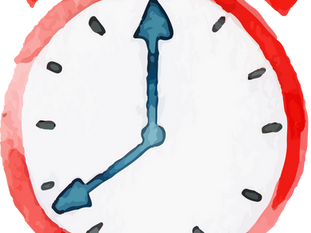

By Kelsey Crowe and Emily McDowell

Published 2017 by Harper One
Synopsis: The creator of the viral hit "Empathy Cards" teams up with a compassion expert to produce a visually stunning and groundbreaking illustrated guide to help you increase your emotional intelligence and learn how to offer comfort and support when someone you know is in pain.
When someone you know is hurting, you want to let her know that you care. But many people don’t know what words to use—or are afraid of saying or doing the wrong thing. This thoughtful, instructive guide, from empathy expert Dr. Kelsey Crowe and greeting card maverick Emily McDowell, blends well-researched, actionable advice with the no-nonsense humor and the signature illustration style of McDowell's immensely popular Empathy Cards, to help you feel confident in connecting with anyone experiencing grief, loss, illness, or any other difficult situation.
Written in a how-to, relatable, we’ve-all-been-that-deer-in-the-headlights kind of way, There Is No Good Card for This isn’t a spiritual treatise on how to make you a better person or a scientific argument about why compassion matters. It is a helpful illustrated guide to effective compassion that takes you, step by step by step, past the paralysis of thinking about someone in a difficult time to actually doing something (or nothing) with good judgment instead of fear.
My opinion:
This is a practical, readable book that makes tough action approachable. The cute illustrations make it engaging and quick to read. The authors include lots of good and bad examples, role plays and practice exercises. I particularly like the 'Empathy Menu' and will definitely refer back to it when someone I care about needs support. I'm impressed with how encouraging the tone is and how well they normalise the awkwardness and good intention of people who want to help but don't know how to start.
Some of their excellent advice includes, 'if you care [and want to help someone who's struggling], doing something is important. But doing something you like to do, and not something you would normally resist doing, is invaluable' (page 154). And, 'Avoid the word "should". If you have entered a house of sorrow, and you feel the word should crossing your lips, stop talking. There's probably food around - eat something instead' (page 219).
Not only is this applicable to personal life, this book would be useful for teachers and leaders in a professional setting as well as high school students in Health subjects. Although I read a library version, I think it would be worth owning a copy for future reference. Overall, highly recommend!
Another reviewer says: 'Overall, I found this to be a practical book! Some of the principles for helping and reaching out seem obvious, but the authors have included lots of example conversations, where they can go wrong, and where they can go right, so it’s easy to take what the book says and apply it to real life.' (Eustea Reads)
Also, Lucio Buffalmano says, 'Hmmm, no cons really. Maybe the examples were so good that categorizing them under specific chapters would have made the book even better. For example, put all the bad examples for “fixing the issue too quickly” altogether. And then “minimizing the pain” mistakes all in a different chapter.
There Is No Good Card for This spells true wisdom and tells the truth. I particularly loved the many examples. They were great and abundant.'
Other books on this topic (that I haven't read yet so make no guarantees about):
How to Be a Person in the World: Ask Polly's Guide Through the Paradoxes of Modern Life by Heather Havrilesky
How to Know a Person: The Art of Seeing Others Deeply and Being Deeply Seen by David Brooks
Comment below to recommend other books. If you're interested in talking about books at our Ex-teachers' Club on Tuesdays, click the button.




